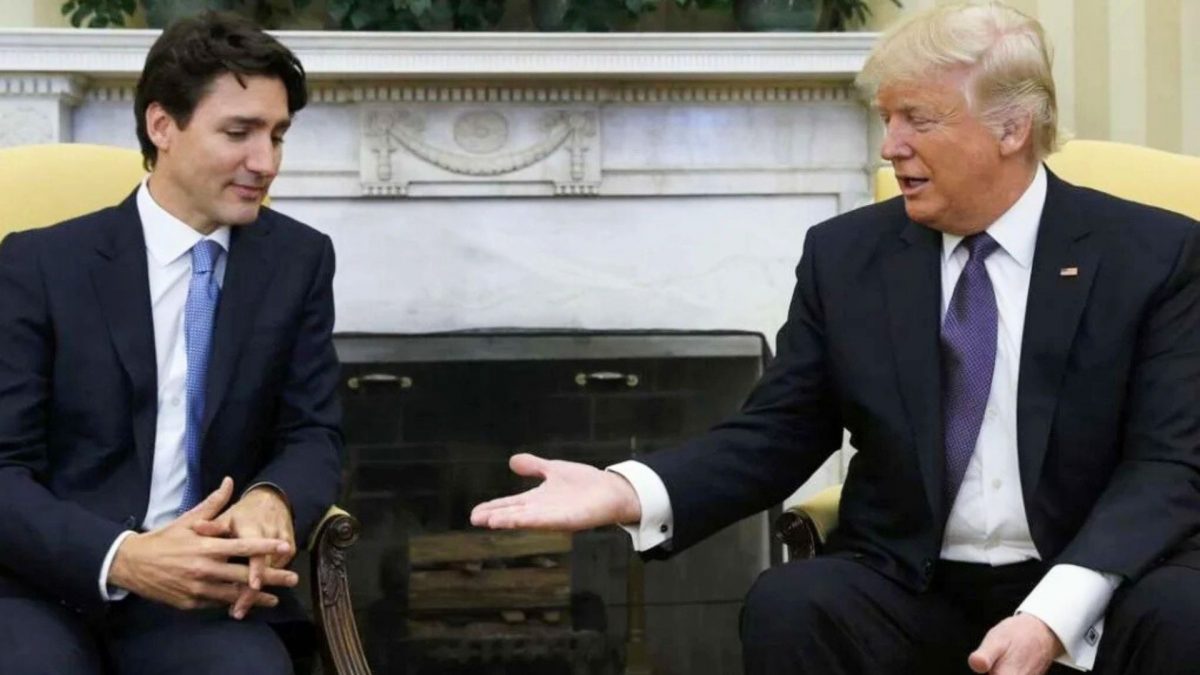Canada’s Prime Minister Justin Trudeau announced that his country would impose 25 per cent tariffs against $155 billion worth of US goods as a retaliatory measure. The announcement came on Saturday night after American President Donald Trump unleashed 25 per cent tariffs on exports from Canada, Mexico and China. Trudeau spoke on the matter just hours after Trump signed the executive order, unleashing a new kind of tariff war.
As per the order, all Canadian goods would be subjected to a 25 per cent tariff except energy products which would face a 10 per cent tariff. Meanwhile, the new Trump administration additionally put a 10 per cent tariff on imports from China. While addressing a press conference on Saturday, the Canadian prime minister said that the tariffs on American goods include “immediate tariffs on $30 billion worth of goods as of Tuesday,” the day the US is set to begin collecting tariffs on Canadian goods. He insisted that the rest of the tariffs would come in about three weeks “to allow Canadian companies and supply chains to seek to find alternatives.”
“Like the American tariffs, our response will also be far-reaching and include everyday items such as American beer, wine and bourbon, fruits and fruit juices, including orange juice, along with vegetables, perfume, clothing and shoes,” the Canadian premier said. “It’ll include major consumer products like household appliances, furniture and sports equipment, and materials like lumber and plastics, along with much, much more,” he added.
Canada is not alone in hitting back
Canada may not be the only nation which will take retaliatory measures. While reacting to Trump’s executive order. Mexican President Claudia Sheinbaum said that she has instructed her secretary of the economy “to implement the Plan B we have been working on, which includes tariff and non-tariff measures in defence of Mexico’s interests.”
In her post on X , formerly known as Twitter, Sheinbaum slammed Trump’s tariffs. “We categorically reject the White House’s slander of the Government of Mexico alleging alliances with criminal organizations, as well as any intention to interfere in our territory," she wrote in the post.
“Mexico not only does not want fentanyl to reach the United States, it does not want it to reach anywhere. Therefore, if the United States wants to combat the criminal groups that traffic drugs and generate violence, we must work together in a comprehensive manner, but always under the principles of shared responsibility, mutual trust, collaboration and above all, respect for sovereignty, which is non-negotiable,” she added.
Neither the Chinese embassy in the US nor China’s Foreign Ministry responded to the tariffs. Earlier this week, China’s Foreign Ministry spokesperson Mao Ning said: “China has given support to the US’s response to the fentanyl issue in the spirit of humanity and goodwill, and conducted counternarcotics cooperation with the U.S. side in a broad-based and in-depth way.”
Impact Shorts
More Shorts“The achievements we have made are there for all to see. We hope the U.S. will work to continue the hard-won positive dynamics in the counternarcotics cooperation,” she added. It is pertinent to note that a tit-for-tat tariff announcement from international leaders could rock the prices of consumer goods in the United States and abroad. Items like food, electronics and cars will get more expensive.
With inputs from agencies.
)